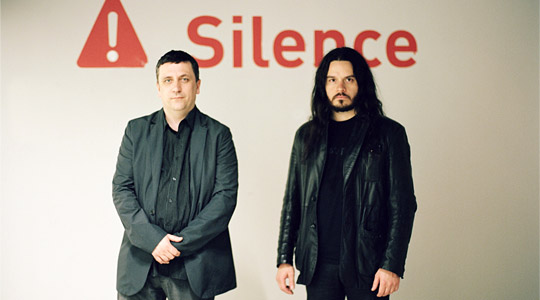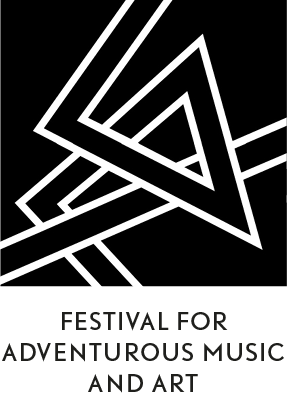Editions Mego
Label Focus


Independent record label Editions Mego was founded in 2006 by Peter Rehberg as a means of conserving a catalogue released via now-defunct experimental electronic music label, Mego. It has since tirelessly exhumed and published archival works as well new, unabashed experimentalists, presenting relevant and challenging entry points into a vast open landscape of experimental music while looking simultaneously forward and backward in time. CTM 2014 will pay tribute to Editions Mego’s ongoing explorations with a multipart programme that spans its various sublabels and recent releases.
Encouraged by techno’s decentralized and rapidly sprawling networks, but soon charting a much more unwieldy and boundless sonic territory, the Mego label was founded in 1994 in Vienna by Ramon Bauer (General Magic), Andi Pieper, and Peter Meininger. Bauer and Meininger had previously run Mainframe, one of Austria’s first techno imprints. Meiniger left in 1995, only to be replaced by Peter Rehberg, also known under the artist name Pita.
Three years older than the CTM Festival, Mego and later Editions Mego have served as a continuous source of inspiration for CTM’s own explorations of vanguard music since its inception in the summer of 1998.
The label’s first release, Fridge Trax EP by “General Magic & Pita”, was followed by 75 further releases including timeless classics such as Pita’s Seven Tons for Free (1996), which laid the foundation for what later became known as glitch, or Kevin Drumm’s Sheer Hellish Miasmah (2002) that introduced many into the worlds of drone and noise. Fennesz’ Endless Summer (2001), which, seen from today, might well go through as an early hauntological masterpiece due to its complex layering of nostalgic pop references buried in hiss and feedback, coupling dazed memories and sonic decay, remains another of the label’s masterpieces.
When Mego suffered a financial breakdown in 2005, Ramon Bauer and Andi Pieper decided to fold. Peter Rehberg, however, decided to reset and go on, founding Editions Mego in 2006 with the intention of both sustaining the Mego catalogue and publishing new works of experimental music using consecutive catalogue numbers. With this approach he thus created both a conscious break with the past and a form of continuity.
Editions Mego has ever-since run as a solo attempt, propelled by Rehberg’s formidable music enthusiasm from his Vienna home office. The label has become more productive than ever, counting more than 50 releases alone in 2012 and more than 30 in 2013. Major releases such as Oneohtrix Point Never’s Returnal or Emerald’s Does It Look Like I’m Here? grant the label an almost unquestioned aesthetic authority, which gives Rehberg even more room to take ever bigger risks.

Sonically, Editions Mego has become even more daring than its predecessor, spanning a wide range of experimental music that reaches from Eyvind Kang and Jessica Kenney’s interpretations of age-old traditional music to the futuristic rave deconstructions of Evol, or from the utterly idiosyncratic black metal of Wold to the computational stuttering of Mark Fell. Another project that embodies the genre-defying attitude behind the label like few others is KTL, Rehberg’s collaborative project with Stephen O’Malley. KTL combines Rehberg’s high pitched computer noise with O’Malley’s guitar subterranean drones.
In looking at this impressive level of activity and overwhelming wealth of sonic experimentation, one might not help but feel a somewhat strange yet provocative resonance, humming in tune with the label’s name. Mego allegedly stands for “My Eyes Glaze Over” and originates from Herman Kahn, a prominent American futurist and military strategist who among other things inspired Stanley Kubrick’s at once sinister and manic film character, Dr. Strangelove. Accordingly, Mego either leans towards intentionally using dense and ciphered information to confuse and distract the listener, eventually inducing agreement because the listener does not want to admit to not understanding what is going on, or, from another perspective, refers to the listener’s eye-glazing reaction, triggered by information overload.
Rehberg admits that the label is not bound to a specific concept, nor unified by a singular visual identity. But he maintains an impressive quality control, based on his personal judgements and on those of several collaborators, who head an array of specialized sublabels.

Former Emeralds man John Elliot, who will play CTM 2014 with his new project Outer Space, runs Spectrum Spools, a sublabel that regroups the current activities of the US synthesizer music underground. Old News puts out musical experiments by ex Sonic Youth and Gastr del Sol member Jim O’Rourke, while Sensate Focus gives room for Mark Fell’s algorithmic house aberrations. Ideologic Organ serves as the outlet for the personal quest of Stephen O’Malley. Drawing together new and past works, O’Malley’s approach might best be described as an attempt to encircle a group of timeless works of “spectral” music. Another sublabel that goes primarily backward in time is Recollection GRM, which has released a substantive body of work from the Paris-based Groupe de recherches musicales (INA-GRM). Founded by Pierre Schaeffer in 1958 to explore his idea of acousmatic music, and still active today, it has counted musicians such as Luc Ferrari, Iannis Xenakis, and the recently deceased Bernard Parmegiani among its members. In close collaboration with this legendary institution, Recollection GRM issues gems from the GRM archives.
Interestingly, Rehberg, who is heavily inspired by industrial music and has collaborated with many renowned artists including Jim O’Rourke, Christian Fennesz, Matmos, Marcus Schmickler, Russell Haswell, Florian Hecker, Mika Vainio, Zbigniew Karkowski, Z’EV, Keith Rowe, Dennis Cooper, and Sunn O))), still considers himself a non-musician. It is probably exactly this sensitivity and non-conformity of a person who can’t play music but does so nonetheless that serves as the basis for the unbound and inspiring musical search he keeps extending through Edtions Mego.

